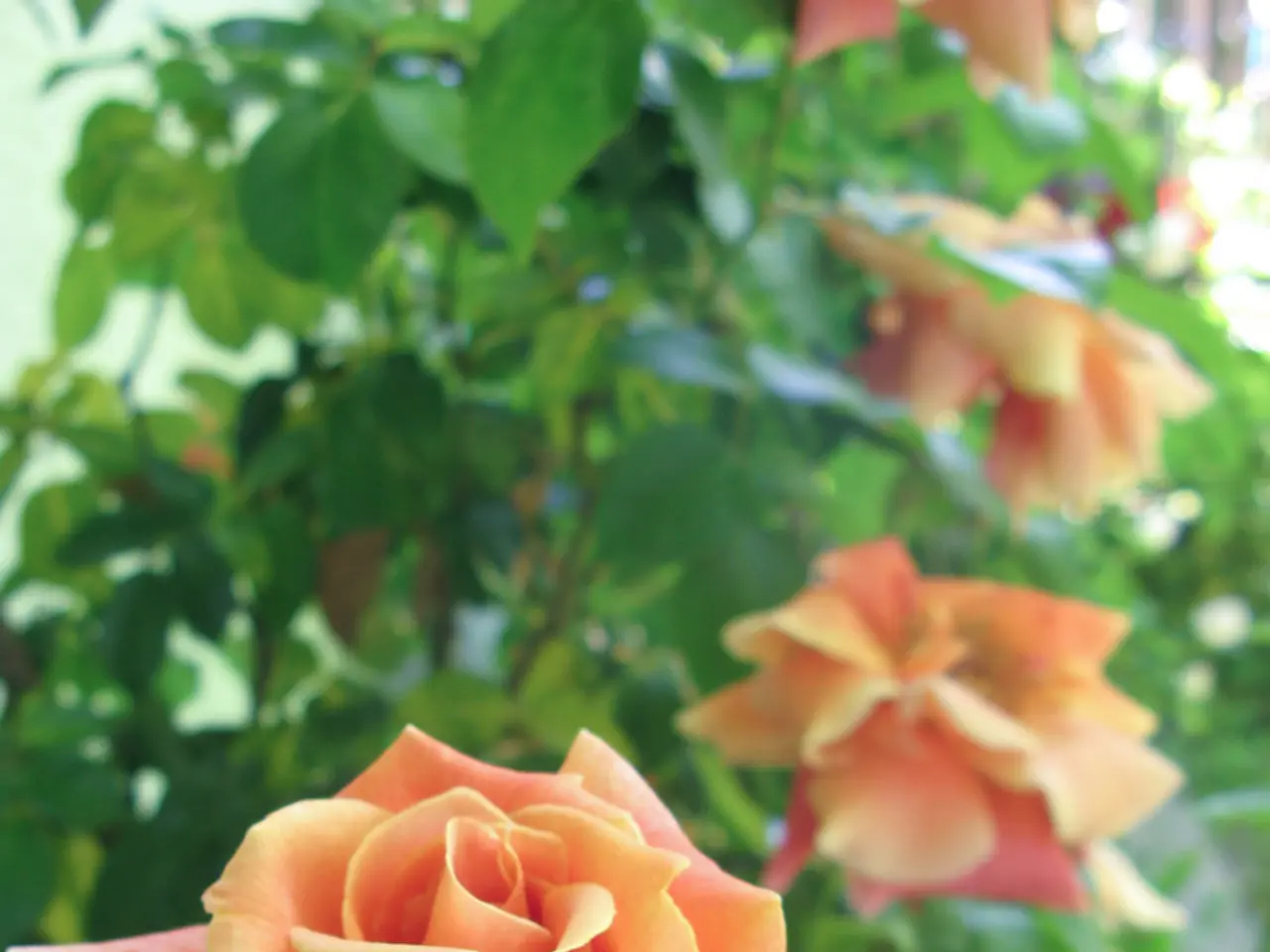Spring Fertilization Schedule for Knockout Roses: Pro Tips from Experts
Caring for Knockout Roses: A Comprehensive Guide
Glen, an experienced gardener with over 15 years of hands-on experience, shares valuable insights on maintaining healthy and flourishing Knockout roses. Here's a guide to help you care for these beautiful blooms.
Prune and Deadhead Regularly
Prune your Knockout roses in late winter or early spring, before new growth appears, cutting back the rose bush by about half. This encourages vigorous and healthy growth. Regular deadheading throughout the growing season, especially every 7-10 days in summer, keeps the plant tidy and encourages continuous flowering.
Fertilize Wisely
The recommended schedule for fertilizing Knockout roses includes an initial application in early spring, a second application after the first bloom, and avoidance of fertilizing in late summer. Over-fertilizing can cause harm to Knockout roses, leading to vulnerable new growth that won't survive the colder months. A balanced fertilizer like a 10-10-10 mix is recommended for Knockout Roses, and organic fertilizers are also a good option.
Summer Care
During summer, Knock Out roses experience blooming phases followed by resting periods. Light pruning during these resting periods is acceptable. Remove no more than one-third of the plant to maintain air circulation and reduce stress, including thinning out crowded canes and removing dead or diseased wood.
Water Appropriately
Knockout Roses prefer slightly moist, well-drained soil rich in organic matter with a pH between 5.5 and 6.5. Water deeply but infrequently only when the soil is dry, watering at the roots to prevent fungal diseases.
Optimal Growing Conditions
For optimal growth, Knockout Roses need at least six hours of sunlight daily, and should be planted in a spot with good air circulation and on a gentle slope for better drainage. Loamy soil is ideal for these hardy roses.
Disease and Pest Management
Identifying and treating common diseases in Knockout roses is crucial. Powdery mildew can be treated with a fungicide or a homemade mix of baking soda and water, black spot requires the removal of affected leaves and the use of a fungicide, and rust can be managed with a sulfur-based spray. Preventing pest infestations involves recognizing problems early and using the right methods. Aphids can be controlled with a soap and water spray or by introducing ladybugs, Japanese beetles can be managed with handpicking or traps, spider mites can be kept under control with a strong spray of water on the undersides of leaves, and root weevils can be combated with nematodes.
By following these best practices, you can ensure robust Knockout Roses that bloom profusely from spring to the first frost. Happy gardening!




